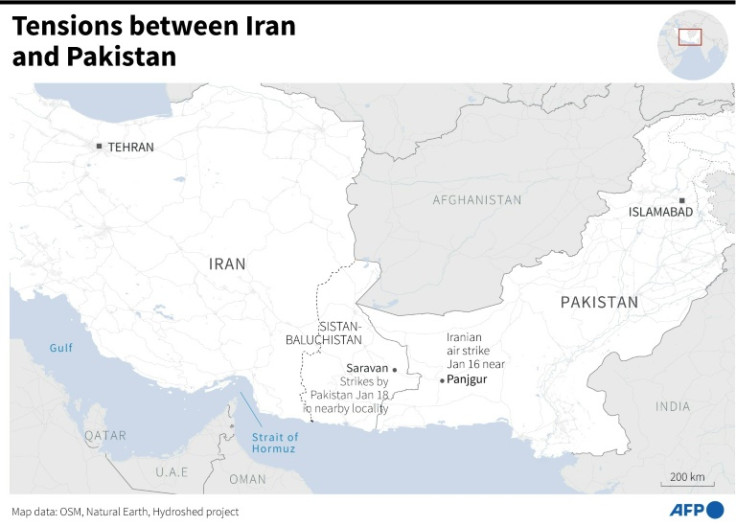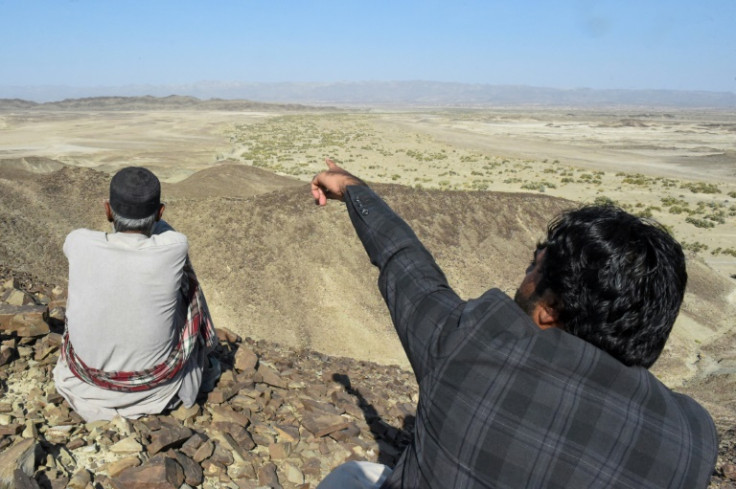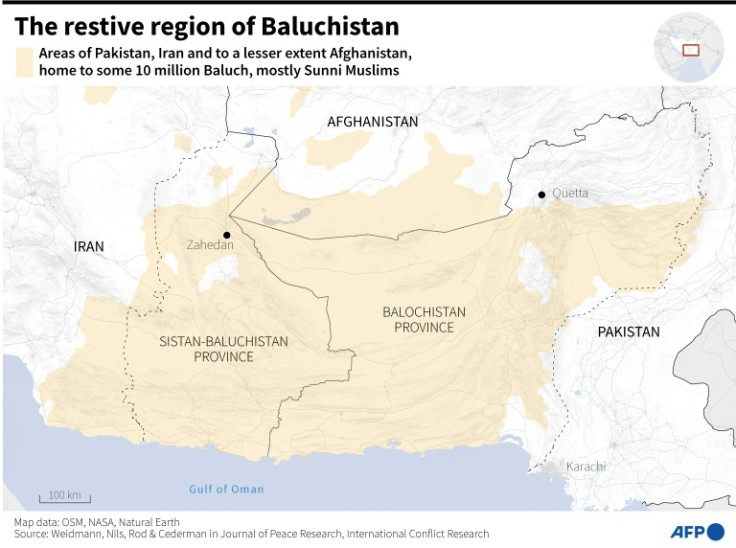Pakistan Holds Emergency Security Meeting After Trading Strikes With Iran

Pakistan's prime minister will hold an emergency security meeting on Friday with military and intelligence chiefs after trading deadly air strikes with Iran on militant targets this week.
The rare military actions in the porous border region of Baluchistan -- shared between the two countries -- have further stoked regional tensions already enflamed by the Israel-Hamas war.
Iran carried out a missile and drone attack on what it called "terrorist" targets in Pakistan on Tuesday night, with Pakistan in turn striking militant targets inside Iran on Thursday.
Pakistan has recalled its ambassador from Tehran and said Iran's envoy -- on a visit home -- is blocked from returning to Islamabad.
The United Nations and the United States have appealed for restraint, while China has offered to mediate.
"The prime minister has summoned a meeting of the National Security Committee set to take place today," a spokesperson in his office told AFP.
An Islamabad security official said the Chief of Army Staff and head of the intelligence services will attend the mid-afternoon meeting.
Pakistan's leader Anwaar-ul-Haq Kakar cut short his visit to the World Economic Forum in Davos, Switzerland following the strikes.
His caretaker government is leading Pakistan into general elections just three weeks away and has been marred by allegations of pre-poll rigging.
Tehran and Islamabad have both said they hit their own domestic militants sheltering on foreign territory.
A collective death toll of 11 -- mostly women and children -- was reported from both sides of the border that bisects an arid region where militant movements have simmered for decades.
In the remote, arid villages near the strike site in Panjgur district where mobile signal is rarely available, farmers pieced together the events from reports passed on from visiting security officials who set up checkpoints in the area.
"Helicopters were flying overhead and going in the direction of where the Iranian strike hit, but we didn't know what had happened," Maulana Mohammad Sadiq, 42, the prayer leader of a small seminary around five kilometres from where a missile hit, told AFP on Thursday.
Villagers feared that deteriorating relations between the two sides could lead to border closures and cut off residents from Iranian trade, which the area relies on for employment and food imports.
"If Iranians close the border, the people will starve and it will cause more militancy because youth will join the separatist organisations," said 55-year-old Haji Mohammad Islam.
Baluch separatists have been waging a decades-long low-level insurgency against Pakistan authorities from the largely ungoverned, impoverished region fighting for a better share of mineral resources.
Rights groups say the military's crackdown on the insurgency has included widespread enforced disappearances and extrajudicial killings.
Militancy has also risen sharply along Pakistan's border with Afghanistan further north, after the Taliban's return to power there in 2021.


© Copyright AFP 2024. All rights reserved.











